Table of Contents
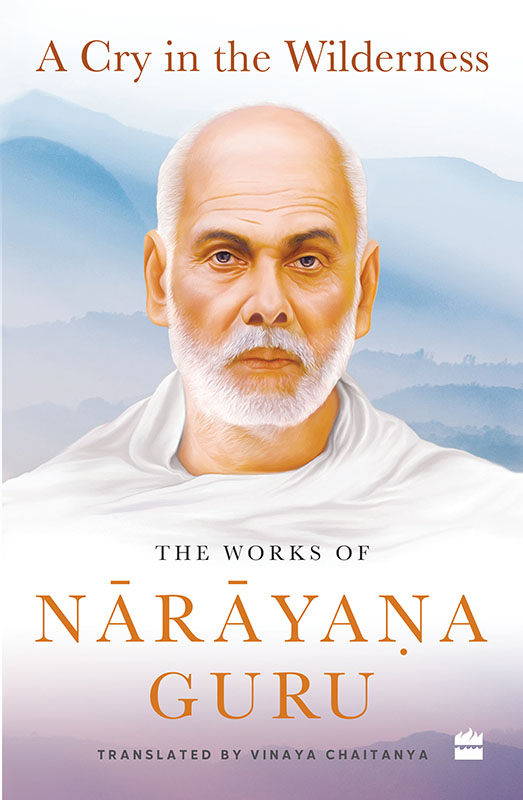
 Dedicated to Naarja Guru, the one sustaining source of inspiration, by his disciple, the present translator.
Dedicated to Naarja Guru, the one sustaining source of inspiration, by his disciple, the present translator. CONTENTS In the verdant countryside of south-west India, near the turn of the last century, lived a great poetseer, a mystic who became the lightning rod for the transformation of the future state of Kerala from abject feudalism into an exemplary democracy. Gently proclaiming justice and equality for all, grounded in the mystical depths of life, Nryaa Guru wandered through the landscape, interacting with the multitudes who came to meet him, electrifying them to be at their best and galvanizing a peaceful movement to eliminate oppression in all its forms. With a motto of One Caste, One Faith, One God for Humanity, he unleashed boundless energy in those eager to dispense with the bondage of harsh traditions. Cheerful and compassionate at all times, the Guru directly demonstrated the practicability of attaining those goals through goodwill. He epitomized the way to mount a successful non-violent revolution: it must be grounded in philosophical realizations that are not divorced from practical considerations. Along the way he composed a compact body of writing that provides the conceptual underpinnings of why it worked.
They are all gathered together in this book. Nryaa Guru had been a fiercely independent and original thinker from childhood. Warned not to have contact with other castes and with untouchables, he would slip out of his home to embrace them and then secretly touch his family members, observing no ill effects. His inner pulse beckoned him to withdraw from the social activities his family expected of him and, at the inception of adulthood, he ascended a nearby mountain to live alone in a cave with a view over the southern tip of India meditating continuously until an overwhelming vision of unity dawned within him. In its brilliant light, he realized that life, in all its variety, was a single overarching principle in which every iota was interconnected with every other. Before long, he descended to the villages and temples of the vicinity bearing his new name, Nryaa Guru meaning, essentially, the human guru and began demonstrating a way of life that paid no heed to the existing feudalistic stereotypes and the tyrannical laws that promulgated them.
He lived as a free human being in a world without barriers, and swiftly the populace became inspired by his infectious spirit. The Gurus writings parallel the gradual expansion of his influence, beginning in a localized context and growing to a global inclusiveness. All of it expresses the unity he encompassed in his best-known slogan: humanity is of one caste, one religion, and one God. One caste, of course, is the same as no caste we are all of the human caste. One religion or faith means we all have the same guiding spirit at heart; he described it as true universal happiness. One God includes all the names and shapes of all the gods who ever were or ever will be, not excluding all the atheistic versions like matter, energy, evolution, nature; it is an all-inclusive framework.
While most of his poems are brief, later in his life, the Guru brought forth several major works intended to weave all of human endeavour into a single tapestry. At least two of which, tmopadea atakam and Darana Ml, deserve to be admitted into the canon of Indias foundational Upaniads. The words Nryaa Guru recorded are few, yet they are of exceptional potency, stimulating deep and original explorations, entryways into a profound appreciation of the human condition. In this book, you will have access to his entire opus everything that has been recovered to date. Vinaya Chaitanya has enjoyed a lifetime of intimate contact with Nryaa Gurus wisdom and offers us a fresh translation of each work. A disciple of Nryaa Gurus most prominent exponent, Naarja Guru, who carried forward his mystical and philosophical teachings, Vinaya has the requisite training to reveal the Gurus true intent.
Vinaya not only brings his keen ear for language to bear, but he is also a veteran sojourner in the wisdom territory behind it, enabling him to retain the subtle hints and implications eloquently woven into the poems. Thanks to his close familiarity, rather than present the entries in chronological order, Vinaya has given them a more natural shape based on the sequence of ideas. Indian languages dont readily fit into English, with its very different orientation to the world, making the translators task extremely challenging, particularly as here, where a highly refined and original philosophy is involved. Due to the capaciousness of the implications of the language, it is almost unfair to have to compress the meaning into same-sized English verses, as is traditionally done. The originals are koans, nuggets of immeasurable expanse. The bare translations, while profound in their own right, are only the beginning of a superbly rewarding exploration of Nryaa Gurus truly liberating vision.
Nryaa Gurus words are especially evocative, and exploring their implications with the assistance of his disciples commentaries is endlessly delightful. Naarja Guru had the requisite genius, coupled with both Eastern and Western academic training, to tease his revolutionary insights down from the empyrean, and couch them in terms relevant to the science and philosophy of the twentieth century. Naarja Gurus disciple Nitya Chaitanya Yati added a poetic and psychological flare to make their purport especially relevant to the spiritual transformation of seekers of a meaningful life. The triad of is has helped move the Gurus philosophy in line with modern-day thinking, and, in the process, offers a pathway to rid oneself of hidden prejudices and biases that can undermine cogent reasoning. Naarja Guru based his formidable Integrated Science of the Absolute, intended for the scientific-minded seekers of unified theories, on the one hundred verses of Darana Ml. Nitya Chaitanya Yati composed a more broadly accessible work, The Psychology of Darsanamala, on it as well.
Naarja Guru also wrote a book of commentary on tmopadea atakam, the One-Hundred Verses of Self-Instruction, and Nityas commentary on it, That Alone: The Core of Wisdom, is a splendid exposition of practical spirituality. Other elucidating expositions have been written on Advaita Dpika, Daiva Daakam and a few of the other poems. Each separate verse of these masterpieces effervesces bountiful illuminations. Nryaa Guru has been gone for nearly one hundred years, and, in that time, his admirers have absorbed and ripened his revelation, rendering it not only comprehensible but thrilling: a singularity that has generated a universe of breathtaking dimensions. Welcome to it. Scott Teitsworth Portland Gurukula, 2021 A guru is a teacher of wisdom.
Nryana Guru is a guru. Wisdom refers to finalized knowledge. It is more than mere reason prevailing at a given place at a particular time. It arises from contemplation. Wisdom has been compared to a great river, which flows silently through time. Teachers of such wisdom have enriched human traditions everywhere.
Such teachers have been held in high esteem and honoured in different ways in different contexts. Their teachings have influenced generations through myths or legends, theologies or mysticism, religion or philosophy. Whatever the form, they have always had a perennial content and message for humanity. The wisdom that they teach leads one to appreciate values that are universal. It is this knowledge of value appreciation that distinguishes Homo sapiens from the rest in the animal kingdom. Without such wisdom, society will drift without norms or standards, and social units will become stagnant and steeped in the mire of relativism.


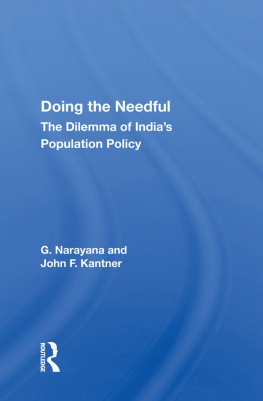
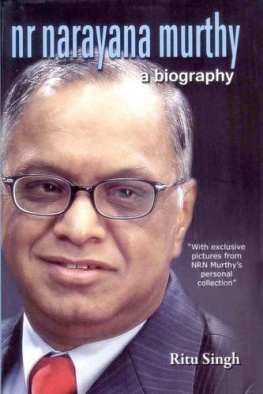
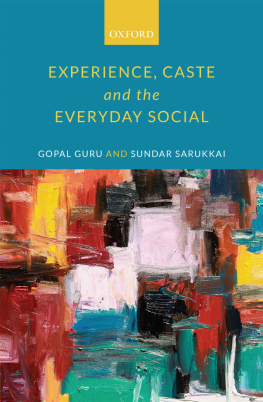

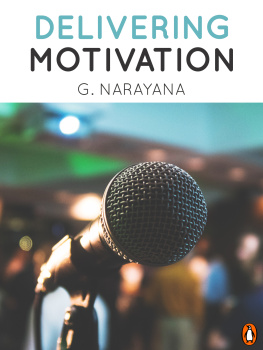
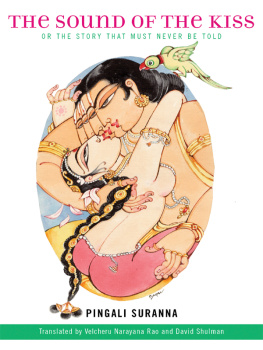
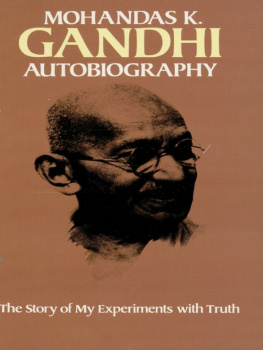
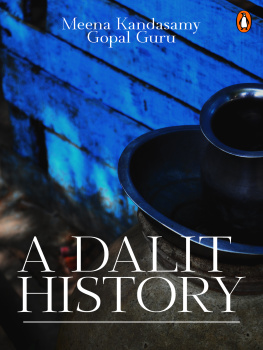

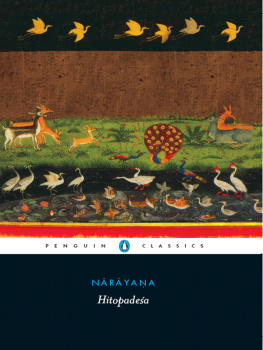

 Dedicated to Naarja Guru, the one sustaining source of inspiration, by his disciple, the present translator. CONTENTS In the verdant countryside of south-west India, near the turn of the last century, lived a great poetseer, a mystic who became the lightning rod for the transformation of the future state of Kerala from abject feudalism into an exemplary democracy. Gently proclaiming justice and equality for all, grounded in the mystical depths of life, Nryaa Guru wandered through the landscape, interacting with the multitudes who came to meet him, electrifying them to be at their best and galvanizing a peaceful movement to eliminate oppression in all its forms. With a motto of One Caste, One Faith, One God for Humanity, he unleashed boundless energy in those eager to dispense with the bondage of harsh traditions. Cheerful and compassionate at all times, the Guru directly demonstrated the practicability of attaining those goals through goodwill. He epitomized the way to mount a successful non-violent revolution: it must be grounded in philosophical realizations that are not divorced from practical considerations. Along the way he composed a compact body of writing that provides the conceptual underpinnings of why it worked.
Dedicated to Naarja Guru, the one sustaining source of inspiration, by his disciple, the present translator. CONTENTS In the verdant countryside of south-west India, near the turn of the last century, lived a great poetseer, a mystic who became the lightning rod for the transformation of the future state of Kerala from abject feudalism into an exemplary democracy. Gently proclaiming justice and equality for all, grounded in the mystical depths of life, Nryaa Guru wandered through the landscape, interacting with the multitudes who came to meet him, electrifying them to be at their best and galvanizing a peaceful movement to eliminate oppression in all its forms. With a motto of One Caste, One Faith, One God for Humanity, he unleashed boundless energy in those eager to dispense with the bondage of harsh traditions. Cheerful and compassionate at all times, the Guru directly demonstrated the practicability of attaining those goals through goodwill. He epitomized the way to mount a successful non-violent revolution: it must be grounded in philosophical realizations that are not divorced from practical considerations. Along the way he composed a compact body of writing that provides the conceptual underpinnings of why it worked.